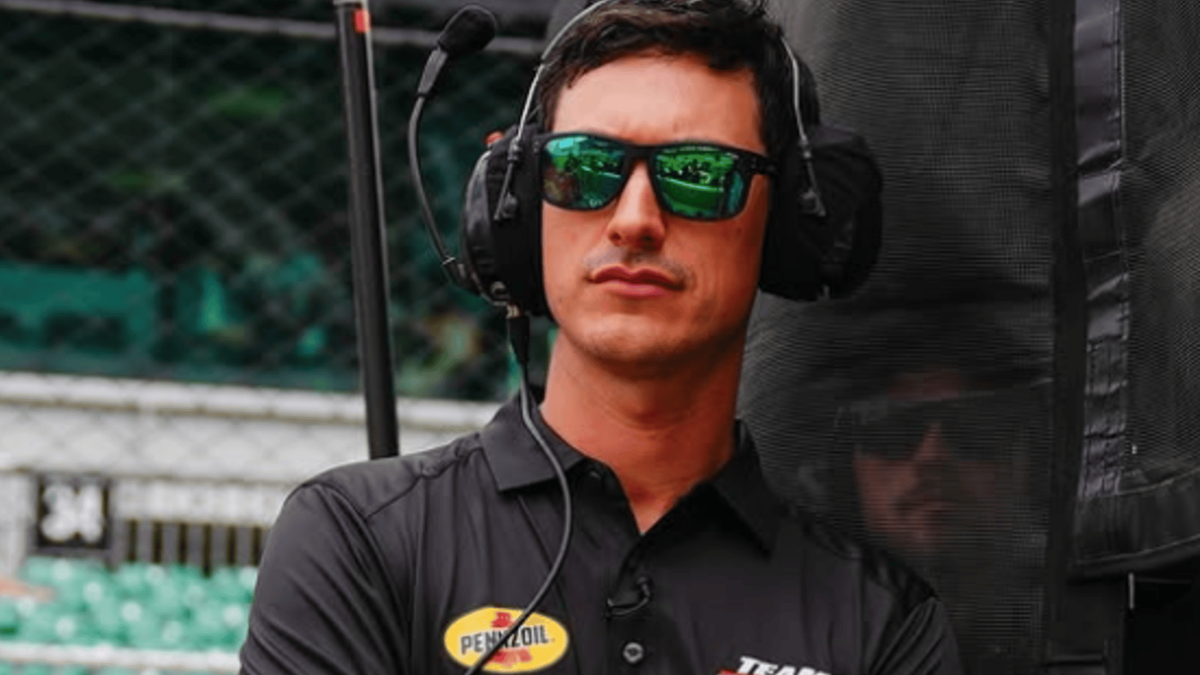

The 2025 NASCAR Cup Series season has been marked by unpredictability. In the previous years, a handful of teams have dictated the pace. However, this campaign has seen parity spread across the garage. Drivers such as Denny Hamlin, Kyle Larson, and Chase Briscoe have each had their moments of brilliance. But no particular driver has run away with the championship picture. With the Next-Gen car now in its third full season, the balance of competition has shifted from dominance to survival. And this year, too, Logano points out one big reason for the mediocrity wave observed across the garage.
Watch What’s Trending Now!
The defending champion is entering the playoffs with modest numbers. He has just one win, three top-fives, and seven top-tens. His Team Penske squad has been competitive, but far from overwhelming. Yet Logano has built his career on performing when it matters most, the way he did it last year. But this time, he knows the path to Phoenix is rarely straightforward. His outlook on the current state of competition hints at something bigger than his own playoff run. What he revealed cuts to the heart of how the Next-Gen era has reshaped racing itself, and why the entire garage feels the weight of this shift.
Joey Logano reveals NASCAR’s disheartening Next-Gen truth
When asked whether this year’s playoff race feels more open than usual, Logano did not hesitate. “It’s been that way. I don’t think anyone has really gone off and ran with it,” he admitted. Logano pointed directly at the impact of the Next-Gen design. According to Logano, the car has tightened the field dramatically. “Everybody’s so tight. When you look at the stats in general, the amount of top 5s and top 10s that a certain team would get is far less than what it used to be.” His words echo a reality many drivers face. The days of a single car racking up eight or nine wins are gone.
Logano drilled down further into what defines success now. “Nowadays, if you can get 12-15 top 5s, you did it. Like you really did it. That’s a heck of a year. So it’s just a different game.” The comment went on to prove the magnitude of the shift. Instead of dominance, consistency has become the measuring stick. This is largely due to the Next-Gen car’s reliance on spec parts and aerodynamic changes. With passing harder and margins tighter, driver intuition and team ingenuity have been blunted. For many, this creates an even playing field. But for others, including Logano, it has made racing feel restrictive and disheartening, a sentiment shared across the garage.
Make it 3X NASCAR Champion@Team_Penske @shellracingus @Pennzoil @FordPerformance @CocaColaRacing #CokePartner pic.twitter.com/oW4to6l3a7
— Joey Logano (@joeylogano) November 11, 2024
JGR star Denny Hamlin also recently commented on the car. “I think that we have a fundamental car problem. It is no doubt a problem. Everyone that has ever driven it has said it’s a problem,” he said in his podcast. “I believe that the Next Gen car is reaching hate levels of the COT (Car of Tomorrow) with the wing. From fans — I think they’re starting to dislike this car as much as the drivers that have to drive it.”
The question now is whether NASCAR will address these concerns or continue to lean on parity as its defining feature. The playoffs will be a proving ground, not only for Logano’s #22 team but also for the broader debate about what kind of racing the Next-Gen car produces. If consistency continues to outweigh domination, the sport could redefine how championships are won and how fans experience competition.
For Logano, his words serve as both a warning and a reminder. The Next-Gen car has changed the game. And everyone in the garage must play by its new, unforgiving rules. And while Logano might get the support of some veterans like Dale Jr on the car issue, when it comes to the playoff format, he gets a counter from him.
Dale Jr counters Logano’s blunt NASCAR stance
The playoff format has long divided NASCAR over its format and changes. Joey Logano recently reignited the discussion with his unsurprisingly controversial take. Coming off his title defense, the Team Penske driver dismissed critics who questioned the legitimacy of a single-race championship. He said that anyone unhappy with the system should simply “do better.” His words underlined a belief that the format tests drivers under maximum pressure. This stance also struck a nerve across the garage by suggesting those who struggle are merely “scared drivers.”
Dale Earnhardt Jr. pushed back on his Dale Jr. Download podcast. He acknowledged Logano as “a legitimate champion,” but he questioned whether crowning a season’s best through one finale reflects the sport’s true competitive balance. Earnhardt Jr argued that while every title has its unique context, “I don’t think the single-race format is the best way to decide the champion.” His comments highlight the tension between celebrating clutch performances and honoring season-long consistency.
Logano’s defense was, “If you’re complaining about it, then just do better… Change it? Fine. We’ll go win it again.” Although bullish, his attitude framed the format as fair because everyone faces the same rules. Earnhardt Jr.’s perspective suggests that fairness may not equal accuracy in defining the best driver of a given year. This clash of philosophies underscored why NASCAR’s leadership is reviewing playoff rules ahead of 2026. With time, drivers and fans have questioned whether the balance has tipped too far toward entertainment over merit.
For now, the system remains unchanged, and drivers like Logano thrive in its high-stakes environment. But with Earnhardt Jr. voicing concerns shared by many, the playoff debate is unlikely to fade. The coming seasons will determine if NASCAR sticks with its current drama-driven finale or pivots back toward rewarding dominance over the grind of the full season.








